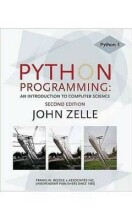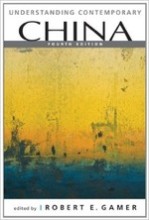Summary: Putin's Russia
- This + 400k other summaries
- A unique study and practice tool
- Never study anything twice again
- Get the grades you hope for
- 100% sure, 100% understanding
Read the summary and the most important questions on Putin's Russia
-
Putin's Russia
This is a preview. There are 84 more flashcards available for chapter 01/12/2014
Show more cards here -
Sovereign democracy (Surkov)
a society's political life where the political powers, their authorities and decisions are decided and controlled by a diverse Russian nation for the purpose of reaching material welfare, freedom and fairness by all citizens, social groups and nationalities, by the people that formed it -
banal / unflagged nationalism
encompasses everyday, routinized and subtextual representations of the nation which penetrate mainstream discourse. Aspects of banal nationalism that reinforce a strongly conservative, if not reactionary, nationalist line and are actively encouraged by the state, include the Putin cult. -
hot / flagged nationalism
: appears more transparently in state symbols and projects. -
public diplomacy (saari)
“deals with the influence of public attitudes on the formation and execution of foreign policies. It encompasses dimensions of international relations beyond traditional diplomacy; the cultivation by governments of public opinion in other countries; the interaction of private groups and interests in one country with another; the reporting of foreign affairs and its impact on policy; communication between those whose job is communication, as between diplomats and foreign correspondents; and the process of intercultural communications.” -
Soft power (Saari)
‘ability to affect others to obtain the outcomes one wants through attraction rather than coercion or payment’ -
Public diplomacy in SU
overt and covert -
PD in the Near Abroad (Post-Soviet States)
more active measures and covert than in Western world. Inheritance of Soviet PD. called often 'humanitarian cooperation'
Stands on 4 pillars:
-Proactive political involvement
-‘NGO diplomacy’ (Kolerov was the mastermind behind this)
-Establishment and management of Russian media ventures
-Softer cultural cooperation, language- and history-related PR campaigns abroad -
Conflicts between State and Church
On the matter of the Orthodox component in public schooling, Kirill has an anti-Western Orthodox ideology while Medvedev wants tolerance and civic responsibility to be the main pillars.
Second, there is a conflict between the ROC and the state concerning the interpretation of history (Stalinism and the Great Patriotic War). The controversy of history highlights the unstable nature of the relationship between the ROC and the Russian state. -
Why did Yeltsin have lesser siloviki under him?
Because yelt'sins apointment of 'outsiders', not always siloviki, was part of his 'regime system of rule'; the practice of maintaining power and balancing interests. -
Reasons for P to appoint siloviki
- Personal ties, trust and loyalty
- Capacities and knowledge (skills made them suitable for the job)
- P inexperienced in politics
- Under institutionalized elite recruitment
- Inheritance of Yeltsins strategy
- Higher grades + faster learning
- Never study anything twice
- 100% sure, 100% understanding
































